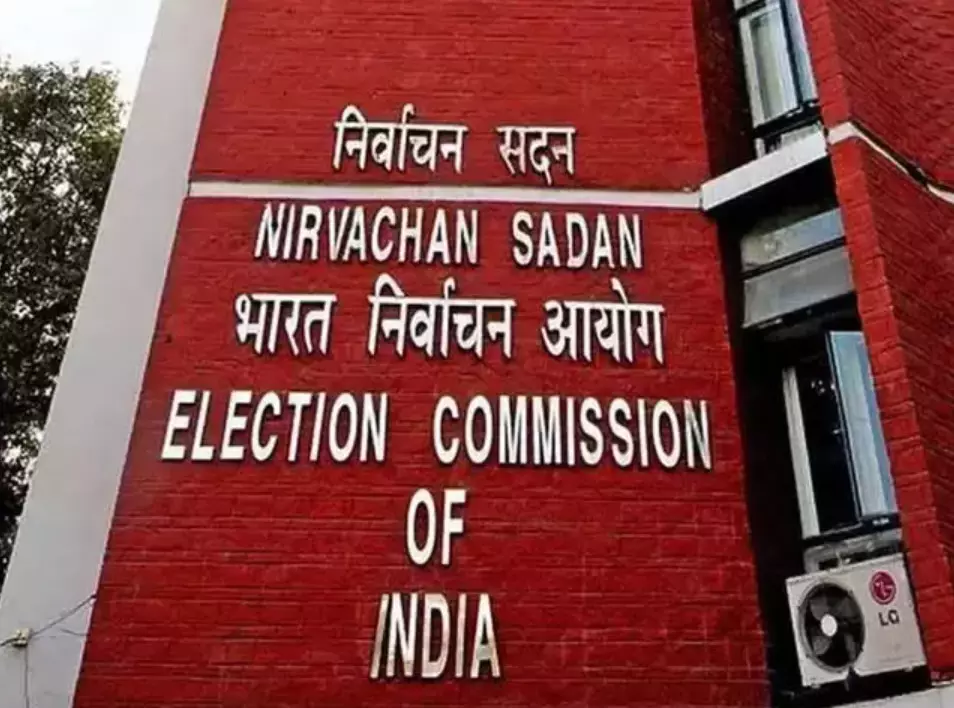Pre-Poll Purge

The unfolding drama around the Special Intensive Revision (SIR) of electoral rolls in Bihar has once again thrust the sanctity of the democratic process into the spotlight. In an election year, with stakes high and political battle lines already drawn, the Election Commission of India’s (ECI) decision to conduct a sweeping door-to-door voter verification drive has sparked outrage, suspicion, and legal challenges. While the EC maintains that the exercise is both constitutional and essential, the opposition—especially the INDIA bloc—has raised pertinent questions that strike at the heart of electoral fairness and inclusivity. At first glance, the SIR may appear to be a long-overdue administrative necessity. The last intensive revision in Bihar was conducted in 2003. Two decades and a massive demographic shift later, it is not unreasonable to expect a fresh overhaul of the electoral rolls. The Commission’s stated objective—to ensure the inclusion of all eligible citizens and eliminate inaccuracies—is certainly unassailable in principle. But the process, its timing, and certain features unique to this revision make it deeply contentious. Of the roughly eight crore voters in Bihar, over 2.88 crore have already been covered in the door-to-door verification, which includes signing forms, updating photographs, and providing proof of residence. The real controversy, however, lies in the additional documentation required from voters who were not in the 2003 rolls. This impacts a significant segment of the population, especially the youth and migrant communities, who may not possess the kinds of records now being sought.
Opposition leaders have rightly pointed out the logistical, procedural, and ethical quandaries embedded in the SIR. Why Bihar—and why now? If the need for electoral cleansing was so urgent, why did the EC not initiate the exercise in a phased, nationwide manner soon after the 2024 Lok Sabha elections? The selective focus on Bihar, especially so close to the state’s legislative polls, lends credence to the opposition’s allegation of political bias. The INDIA bloc, with Tejashwi Yadav and Dipankar Bhattacharya at the forefront, has accused the EC of functioning in a manner that benefits the ruling NDA alliance. They claim that voters likely to support opposition parties are being unfairly targeted for deletion, especially in regions like Seemanchal—known for their minority populations—where the SIR allows officials to refer “suspected foreign nationals” to authorities under the Citizenship Act. This has created an atmosphere of fear, and many believe this clause could be weaponized to disenfranchise legitimate citizens. Further complicating matters is the burdensome documentation process, especially for voters born after 1987, who are now being asked to furnish details of their parents’ date and place of birth—if their parents weren’t on the 2003 rolls. In a state like Bihar, where large-scale migration, poverty, and natural calamities have historically impeded documentation, this condition is exclusionary in effect, if not in intent. The EC’s refusal to accept widely-held documents like Aadhaar cards and MNREGA job cards has only deepened the anxiety. Add to this the confusing reports emerging from the ground—of addresses recorded as “cremation grounds,” blank entries, and inconsistencies in voter details—and one gets the sense of a chaotic, ill-prepared exercise that is out of step with the realities of rural India.
The most alarming concern, however, is the discretionary power vested in Electoral Registration Officers (EROs), who have been authorised to adjudicate claims and objections. In the absence of clear, transparent guidelines and accountability mechanisms, such authority opens the door to misuse and arbitrary disenfranchisement. Political parties allege that the process can be manipulated to systematically delete opposition-leaning voters under the garb of verification. Given the scale of the task—eight crore voters, over one lakh BLOs, and thousands of booth-level agents—the potential for error, delay, and bias is immense. Worse, the monsoon has made physical verification in flood-prone areas an administrative nightmare, as Dipankar Bhattacharya has highlighted. The matter has now reached the Supreme Court, with a joint petition by leaders from the Congress, NCP (Sharad Pawar), Shiv Sena (UBT), CPI, CPI(ML), and others seeking judicial intervention. The apex court’s decision, expected after the July 10 hearing, will be pivotal—not just for Bihar, but for the precedent it sets. Electoral roll revisions are critical instruments in strengthening democracy, but they cannot become tools of disenfranchisement. They must be timely, fair, inclusive, and devoid of even the slightest hint of political motivation. In the end, the credibility of Indian democracy rests on the impartiality and transparency of its institutions. The EC, once seen as a fiercely independent constitutional body, must not allow its reputation to erode through acts—however well-intentioned—that appear selective or hasty. It owes the people of Bihar, and indeed the entire country, not just clean electoral rolls, but a process that is beyond reproach. Anything less would be an injustice to the very idea of free and fair elections.



